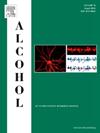社会弱势指数对酒精相关肝病患者的影响。
IF 2.9
4区 医学
Q3 PHARMACOLOGY & PHARMACY
引用次数: 0
摘要
导言:酒精相关肝病(ALD)影响着不同的社区,其个人和社会特征都会对治疗效果产生影响。社会脆弱性指数(SVI)在 0 到 1 之间打分,分数越高,社会脆弱性风险越大。我们试图评估 SVI 对获得社会支持服务的 ALD 住院患者预后的影响:我们对本机构 2019 年 3 月至 8 月期间因 ALD 住院的患者进行了回顾。所有患者均根据其居住人口普查区进行了 SVI 评分。根据我们的标准做法,护理协调员对患者进行筛查,以确定出院后的康复咨询和护理协调需求。对患者的人口统计学、肝功能失代偿、重症监护需求、再入院情况和死亡率进行了比较:在因酒精性肝炎入院的 73 名患者中,32 人的 SVI 值较低,42 人的 SVI 值较高。非裔美国患者更有可能具有较高的 SVI(35% vs 0%,p=结论:大多数因酒精性肝病入院的患者 SVI 值较高,但 SVI 值并不影响住院治疗效果。本文章由计算机程序翻译,如有差异,请以英文原文为准。
Impact of social vulnerability index on patients with alcohol-related liver disease
Introduction
Alcohol related liver disease (ALD) affects diverse communities with individual and social characteristics that can impact outcomes. The social vulnerability index (SVI) assigns a score between 0 and 1, where higher scores represent an increased risk of social vulnerability. We sought to assess the impact of SVI on outcomes of patients hospitalized with ALD with access to social support services.
Methods and materials
Hospitalizations for ALD at our institution between March and August 2019 were reviewed. All patients were assigned an SVI score based on their residential census tract. Per our standard practice, patients were screened by care coordinators to identify needs for rehabilitation counseling, and care coordination after discharge. Demographics, hepatic decompensation, critical care needs, readmission, and mortality were compared.
Results
Among 73 patients admitted for alcoholic hepatitis, 32 had a low SVI and 42 had a high SVI. African American patients were more likely to have a higher SVI (35% vs 0%, p=<0.001). No significant difference in outcomes based on SVI was noted.
There were 393 patients admitted for alcoholic cirrhosis including 166 with a low SVI and 227 with a high SVI. Patients that were African American (23.6% vs 5.5%, p=<0.001) or disabled (41.4% vs 29.5%, p = 0.008) had a higher SVI. No significant difference in outcomes based on SVI was noted.
Conclusion
Most patients admitted for ALD had a high SVI; however, SVI did not impact hospitalization outcomes.
求助全文
通过发布文献求助,成功后即可免费获取论文全文。
去求助
来源期刊

Alcohol
医学-毒理学
CiteScore
4.60
自引率
4.30%
发文量
74
审稿时长
15.6 weeks
期刊介绍:
Alcohol is an international, peer-reviewed journal that is devoted to publishing multi-disciplinary biomedical research on all aspects of the actions or effects of alcohol on the nervous system or on other organ systems. Emphasis is given to studies into the causes and consequences of alcohol abuse and alcoholism, and biomedical aspects of diagnosis, etiology, treatment or prevention of alcohol-related health effects.
Intended for both research scientists and practicing clinicians, the journal publishes original research on the neurobiological, neurobehavioral, and pathophysiological processes associated with alcohol drinking, alcohol abuse, alcohol-seeking behavior, tolerance, dependence, withdrawal, protracted abstinence, and relapse. In addition, the journal reports studies on the effects alcohol on brain mechanisms of neuroplasticity over the life span, biological factors associated with adolescent alcohol abuse, pharmacotherapeutic strategies in the treatment of alcoholism, biological and biochemical markers of alcohol abuse and alcoholism, pathological effects of uncontrolled drinking, biomedical and molecular factors in the effects on liver, immune system, and other organ systems, and biomedical aspects of fetal alcohol spectrum disorder including mechanisms of damage, diagnosis and early detection, treatment, and prevention. Articles are published from all levels of biomedical inquiry, including the following: molecular and cellular studies of alcohol''s actions in vitro and in vivo; animal model studies of genetic, pharmacological, behavioral, developmental or pathophysiological aspects of alcohol; human studies of genetic, behavioral, cognitive, neuroimaging, or pathological aspects of alcohol drinking; clinical studies of diagnosis (including dual diagnosis), treatment, prevention, and epidemiology. The journal will publish 9 issues per year; the accepted abbreviation for Alcohol for bibliographic citation is Alcohol.
 求助内容:
求助内容: 应助结果提醒方式:
应助结果提醒方式:


